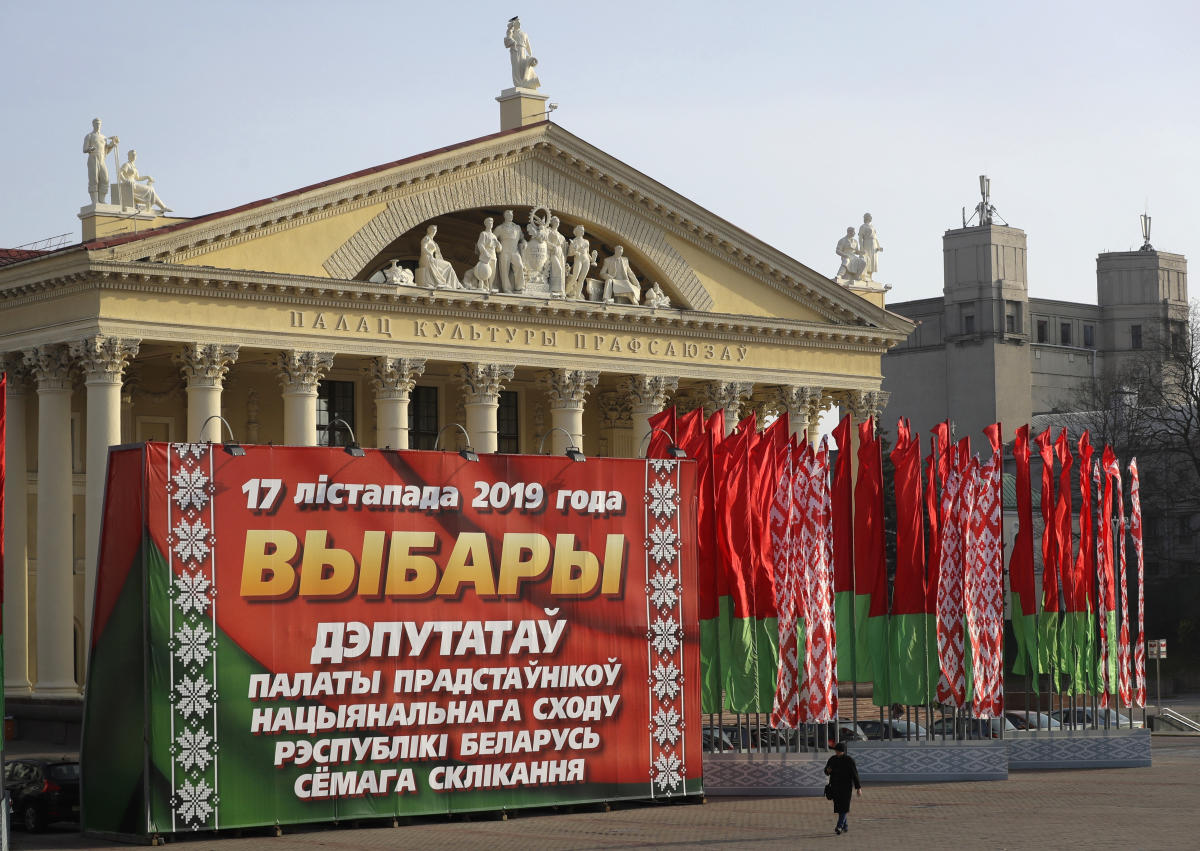Tightly Controlled Parliamentary and Local Elections Underway in Belarus
Authoritarian Leader Looks Set to Cement His Rule as Opposition Calls for Boycott
TALLINN, Estonia (AP) – The people of Belarus headed to the polls on Sunday for parliamentary and local elections that are widely expected to solidify the grip of the country’s authoritarian leader, President Alexander Lukashenko. The opposition has called for a boycott of what they label a “senseless farce”.
President Lukashenko Accuses the West of Undermining His Government
Alexander Lukashenko, who has ruled Belarus with an iron fist for nearly three decades, has accused western powers of attempting to use the elections to destabilize Belarus and undermine his government’s authority. Lukashenko, who recently announced his plan to run for the presidency again next year, claims that the West has nefarious intentions towards the nation and its people.
Registered Parties in Support of Lukashenko Dominate Candidate List
Among the candidates, most belong to the four officially registered parties which support Lukashenko’s policies. These parties include Belaya Rus, the Communist Party, the Liberal Democratic Party, and the Party of Labor and Justice. However, numerous other political parties were denied registration last year, a move that has dashed hopes for any real opposition at the polls.
Exiled Opposition Leader Urges Boycott of Elections
Belarusian opposition leader Sviatlana Tsikhanouskaya, who challenged Lukashenko in the 2020 presidential election and is now in exile in Lithuania, has called on voters to boycott the elections. Tsikhanouskaya claims that the regime has only allowed candidates who are puppets favorable to their cause to participate, denying voters any real choice.
First Election since Mass Protests in 2020
These elections mark the first since the controversial 2020 vote that ignited widespread protests in Belarus. The 2020 election results, handing Lukashenko his sixth term in office, sparked a wave of demonstrations and led to the arrest of over 35,000 individuals. The regime responded with force, beating protestors, shutting down independent media outlets, and outlawing several non-governmental organizations.
Lukashenko Reliant on Subsidies and Support from Russia
Despite the resistance from protestors and calls for change, Lukashenko has maintained control through the financial and political backing of his ally, Russia. The Belarusian leader allowed Moscow to deploy troops to Ukraine earlier this year, a move that further solidified his reliance on Russian support.
Crackdown on Dissent Continues in Belarus
The election takes place amid an ongoing relentless crackdown on dissent in Belarus. The country currently holds over 1,400 political prisoners, including opposition party leaders and Nobel Peace Prize laureate Ales Bialiatski. The opposition has pointed out the potential for widespread manipulation of the vote, citing the absence of protection for ballot boxes during the five-day early voting period.
Observers’ Concerns over Lack of Democratic Process
Belarus has refused to invite observers from the Organization for Security and Cooperation in Europe (OSCE) to monitor the elections, breaking a long-standing practice. The OSCE has not recognized any Belarusian election as free and fair since 1995. Observers have noted that the regime has not even bothered to maintain an illusion of democratic practices this time.
New State Body to Be Formed After Election
Following the completion of the elections, Belarus is set to establish the All-Belarus Popular Assembly, a 1,200-seat state body. This assembly, comprising top officials, local legislators, pro-government activists, and others, will wield considerable power, including the ability to deliberate on constitutional amendments and appoint election officials and judges. Lukashenko, previously rumored to lead the new body, has now confirmed he will run for the presidency again.
Enhanced Security Measures and Curtailing of Civil Liberties
Notably, this election saw the removal of curtains from voting booths and prohibited voters from taking pictures of their ballots. The pro-democracy activists encouraged photographing ballots in the previous elections to mitigate potential vote manipulation, but Lukashenko’s regime cracked down on that practice. Belarusian state TV aired footage of Interior Ministry drills, showcasing measures such as detaining individuals photographing ballots and creating staged queues outside polling stations.
Challenges Ahead for Opposition
Experts state that these elections will serve as a “systems test” for the government after the mass protests in 2020. With the opposition, including alternative voices, barred from actively campaigning for parliamentary seats, the regime aims to erase any lingering memory of the protests and maintain apparent control over Belarusian politics.
Conclusion
Today’s elections in Belarus are poised to sustain the rule of President Alexander Lukashenko despite opposition calls for a boycott. The atmosphere surrounding the elections is fraught with concerns over the lack of democratic practices, ongoing repression of dissent, and external interference from western powers. As the results unfolded, the authoritarian grip over Belarusian politics is expected to tighten, paving the way for further caution and activism from the opposition in the coming months.


